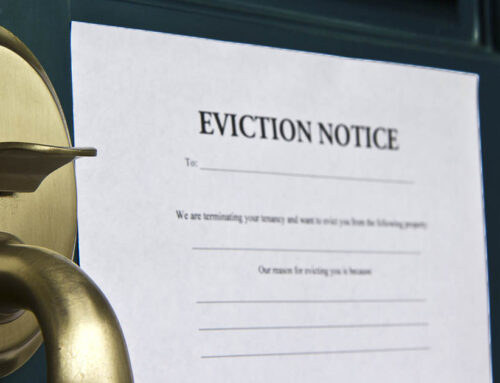Filing for bankruptcy can feel like a daunting process. You’re dealing with complex emotions surrounding your decision to get out of debt, and the prospect of seeking help from a lawyer probably adds stress. In addition, you’re worried about the cost, the process, and the vulnerability involved in telling a stranger about your problems.
You CAN File for Bankruptcy Without a Lawyer
Filing for bankruptcy doesn’t mean you have to hire a lawyer. Not only is it not a legal requirement to work with an attorney, but courts and private companies try to convince you to handle your case without representation.
Bankruptcy courts in New York, Los Angeles, and elsewhere provide online tools to help people complete a Chapter 7 or Chapter 13 bankruptcy petition. These electronic self-representation systems strongly recommend hiring a competent attorney. At the same time, they encourage you to handle the case on your own. Private companies such as Upsolve have also sprung up, offering free help with bankruptcy documents.
Limitations of Self-Serve Bankruptcy
Companies and online services bring down the cost of filing for bankruptcy, promising to get out of debt more quickly and efficiently than ever before. In addition, by playing on common fears, these services make it attractive to avoid attorneys in favor of taking control of your situation.
The problem is that the promises seldom live up to reality.
Services offering bankruptcy document preparation are nothing more than typing services. They can’t give you legal advice or provide guidance on your options after assessing your situation. Furthermore, they don’t represent you in court and offer no protection if your case runs into trouble.
Bankruptcy lawyers, in contrast, provide the advice and support you need to make the decision that best meets your needs. They can help you avoid problems with your case, maximize legal protections, and generally keep you out of trouble.
9 Reasons Why Filing for Bankruptcy Without a Lawyer is Hazardous
Here are nine reasons why filing for bankruptcy without a lawyer could endanger your path to a fresh financial start:
- You may not be eligible for bankruptcy. Do you qualify for bankruptcy? If not, what do you need to do to be eligible for relief? Filing a case when you’re not qualify will get you thrown out of court, causing you to lose legal protections.
- Understand different types of bankruptcy. Bankruptcy isn’t one-size-fits-all. Chapter 7, Chapter 11, Chapter 12, and Chapter 13 each serve different purposes and provide distinct types of relief. An experienced attorney can assess your situation and needs, so you file a case that accomplishes your goals.
- Avoid pitfalls by understanding the bankruptcy process. The standard bankruptcy petition, schedules, and required documents total at least 50 pages. Each court has local rules and forms that supplement or replace those documents. Procedures vary from court to court and may differ depending on the judge and trustee handling your case. With a lawyer, it’s easier to avoid missing a crucial deadline or exposing yourself to losing something you might otherwise be able to protect.
- Explore all your options. Filing for bankruptcy is one of many options available to you. A lawyer can help you explore other choices, such as debt settlement or credit counseling, and help you decide which is best for your situation.
- Protect your assets. In Chapter 7 bankruptcy, the trustee can seize certain assets. Chapter 13 involves a court-ordered repayment plan and allows you to keep everything you own. Will you lose anything if you file Chapter 7? Do you need to file Chapter 13 to protect your assets? A lawyer can answer these questions, helping to protect your assets without needlessly putting you into a Chapter 13 case.
- Determine if you can discharge your debts. Not all debts are dischargeable in bankruptcy. A lawyer can help you understand which debts may be dischargeable and which may not.
- Protect against legal challenges. Creditors can challenge your bankruptcy under certain circumstances. The trustee can object to your discharge. Battling these legal challenges can be expensive and result in a denial of your case. However, you can avoid problems and protect your rights with proper guidance from a bankruptcy lawyer.
- Enforce your rights against creditor harassment. Filing for bankruptcy triggers the automatic stay, which stops most collection actions against you. What happens if creditors or collectors continue to contact you after you file your case? How do you protect yourself from ongoing wage garnishments, judgments, or the threat of foreclosure? A lawyer can help you stop creditor harassment and protect your rights.
- Lower the costs of filing for bankruptcy. You’ll save on legal fees if you don’t hire a bankruptcy lawyer. But if you choose the wrong type of case, you may lose your home, vehicle, and other belongings. You could unnecessarily put yourself into a Chapter 13 repayment plan. You might submit inaccurate documents, and your case may be dismissed. In the end, bankruptcy could be far more costly without an attorney.
Understand the Risks and Choose Wisely
As a bankruptcy lawyer, I’ve watched hundreds of self-represented cases fail. I’ve gotten panicked phone calls from people who made costly mistakes I could have avoided.
If they’d protected themselves, their cases would have been successful. Make sure to avoid the same mistake by talking to a bankruptcy lawyer.
ABOUT THE AUTHOR
Meet Jay
 Since I became a lawyer in 1995, I’ve represented people with problems involving student loans, consumer debts, mortgage foreclosures, collection abuse, and credit reports. Instead of gatekeeping my knowledge, I make as much of it available at no cost as possible on this site and my other social channels. I wrote every word on this site.
Since I became a lawyer in 1995, I’ve represented people with problems involving student loans, consumer debts, mortgage foreclosures, collection abuse, and credit reports. Instead of gatekeeping my knowledge, I make as much of it available at no cost as possible on this site and my other social channels. I wrote every word on this site.
I’ve helped thousands of federal and private student loan borrowers lower their payments, negotiate settlements, get out of default and qualify for loan forgiveness programs. My practice includes defending student loan lawsuits filed by companies such as Navient and National Collegiate Student Loan Trust. In addition, I’ve represented thousands of individuals and families in Chapter 7 and Chapter 13 bankruptcy cases. I currently focus my law practice solely on student loan issues.
I played a central role in developing the Student Loan Law Workshop, where I helped to train over 350 lawyers on how to help people with student loan problems. I’ve spoken at events held by the National Association of Consumer Bankruptcy Attorneys, National Association of Consumer Advocates, and bar associations around the country. National news outlets regularly look to me for my insights on student loans and consumer debt issues.
I’m licensed to practice law in New York and California and advise federal student loan borrowers nationwide.
continue reading





